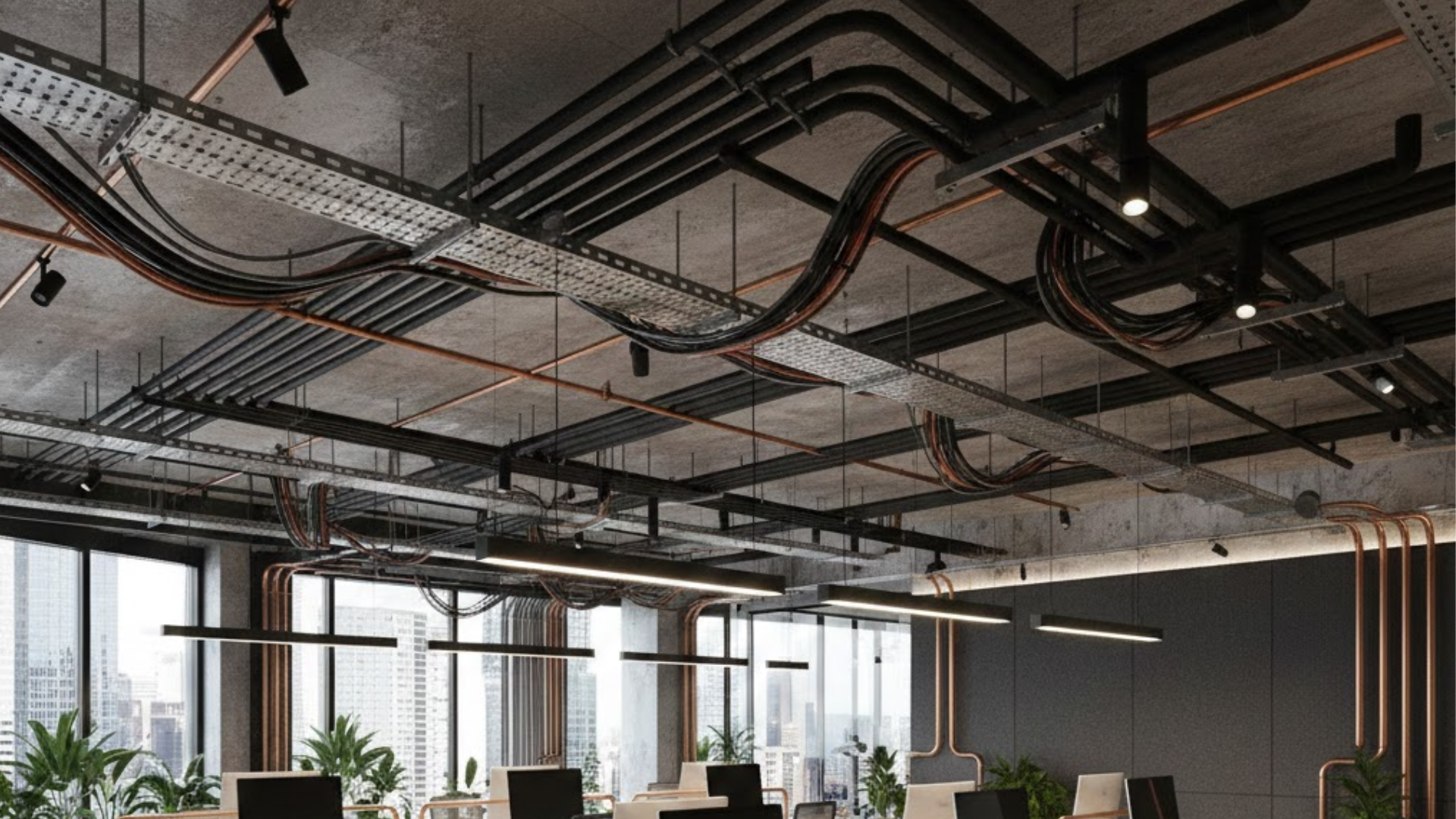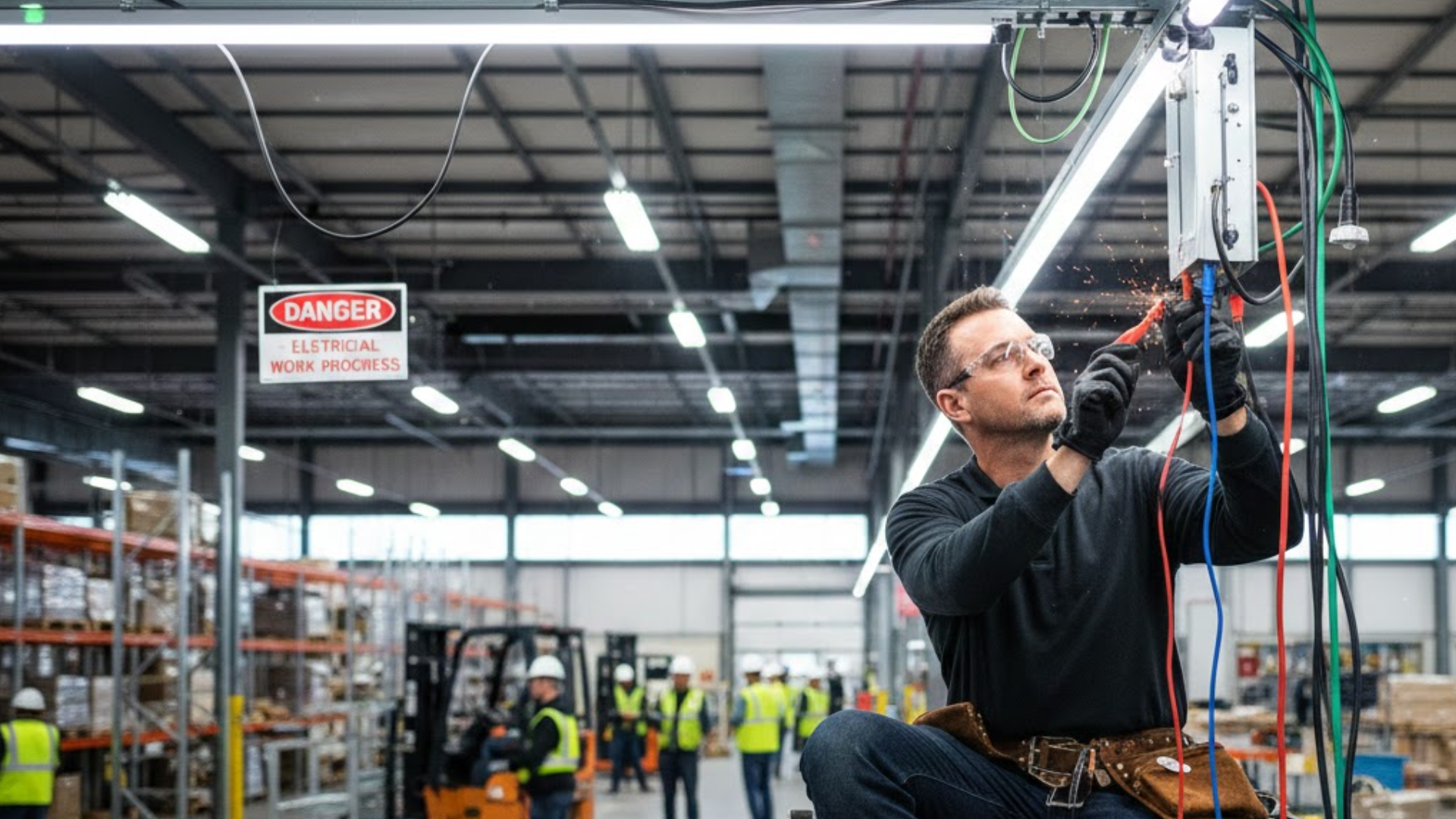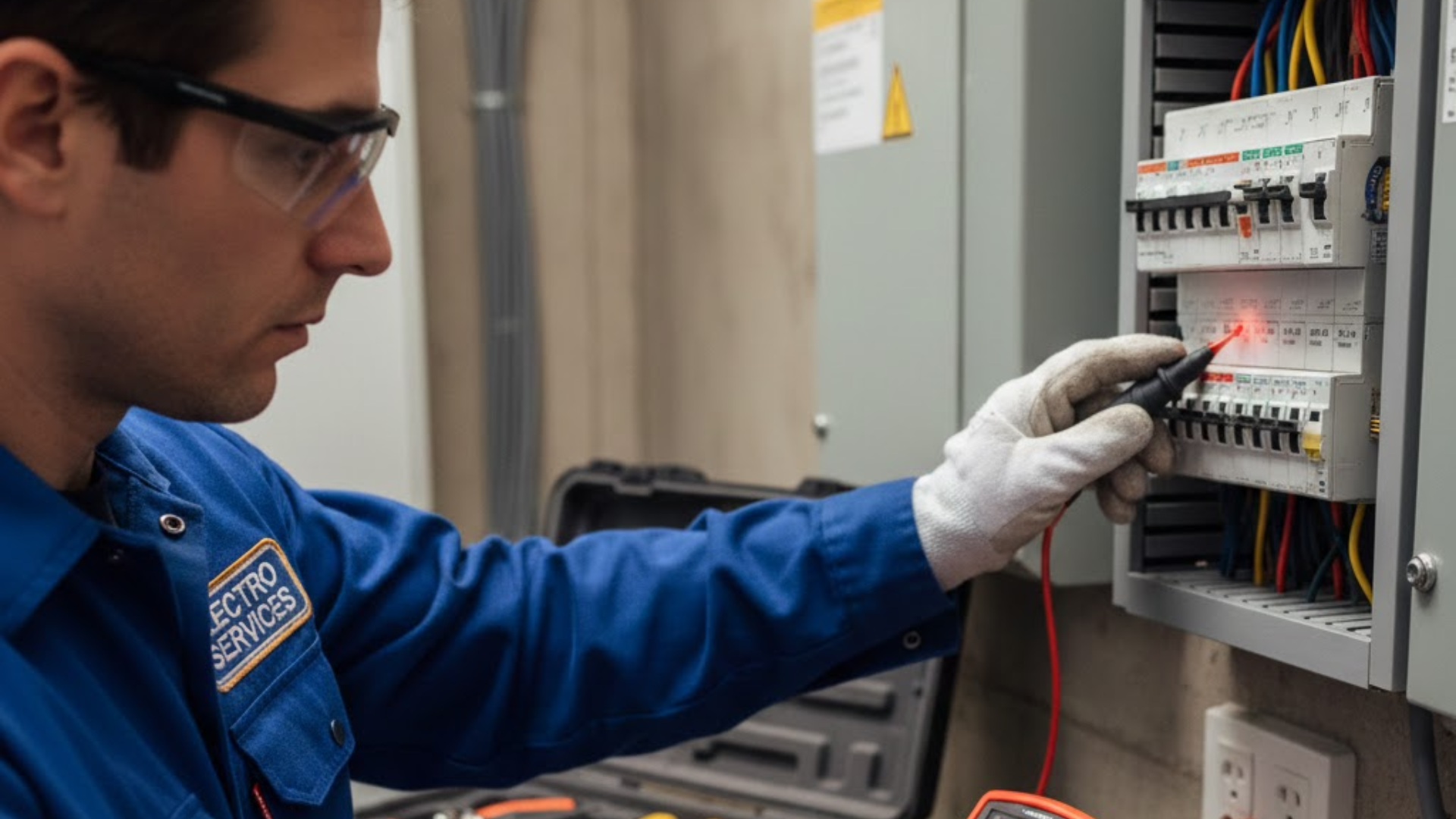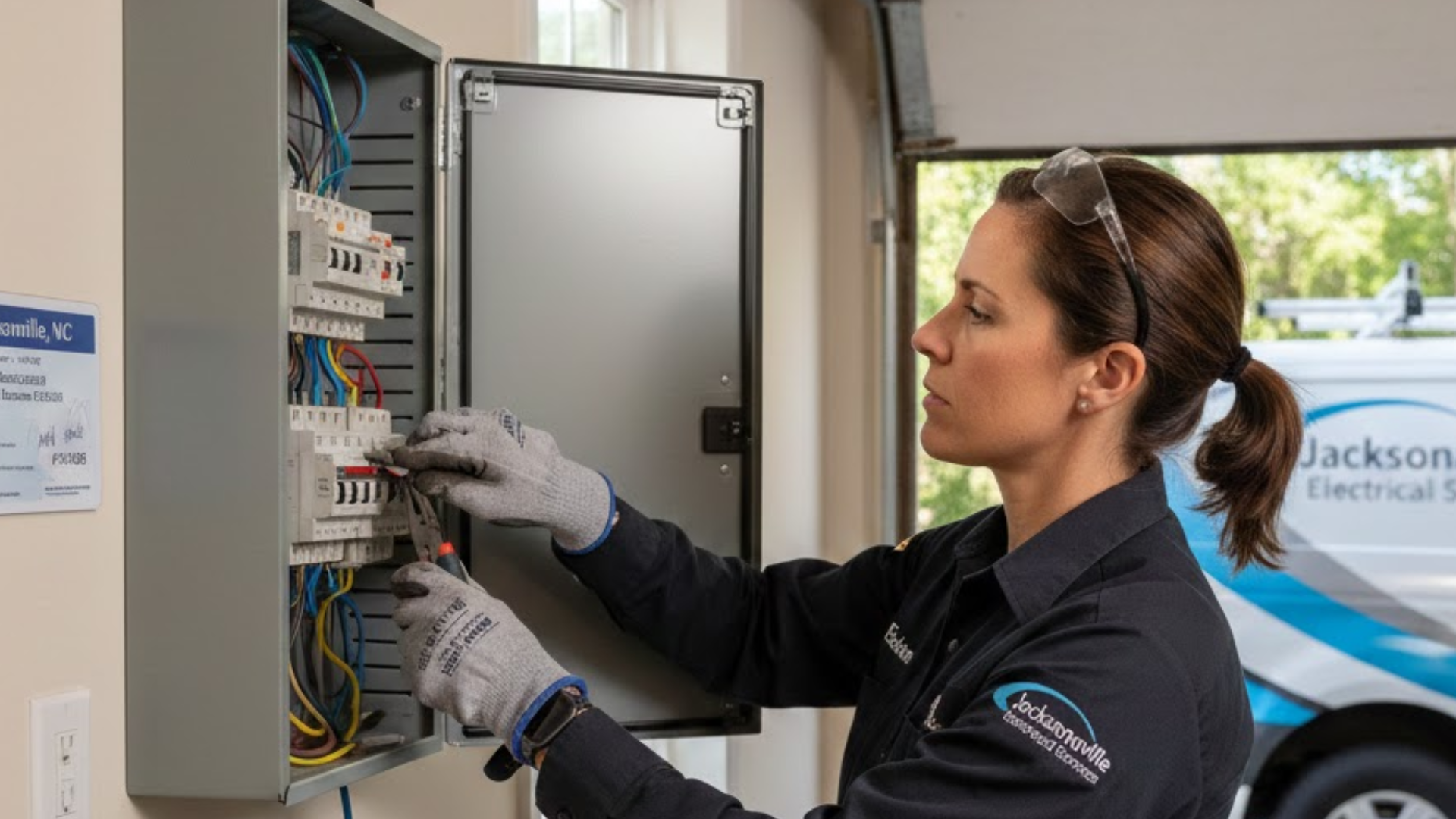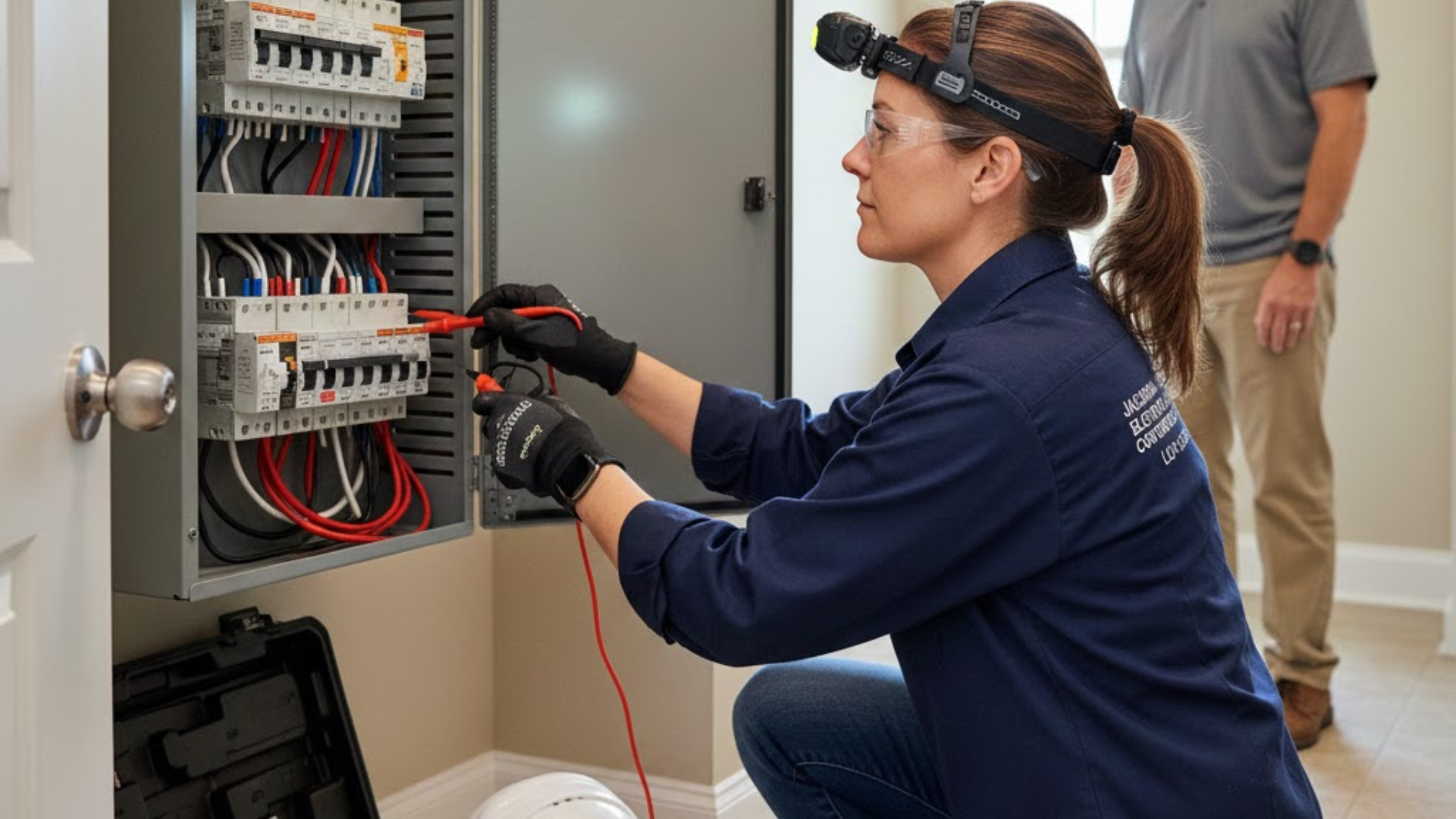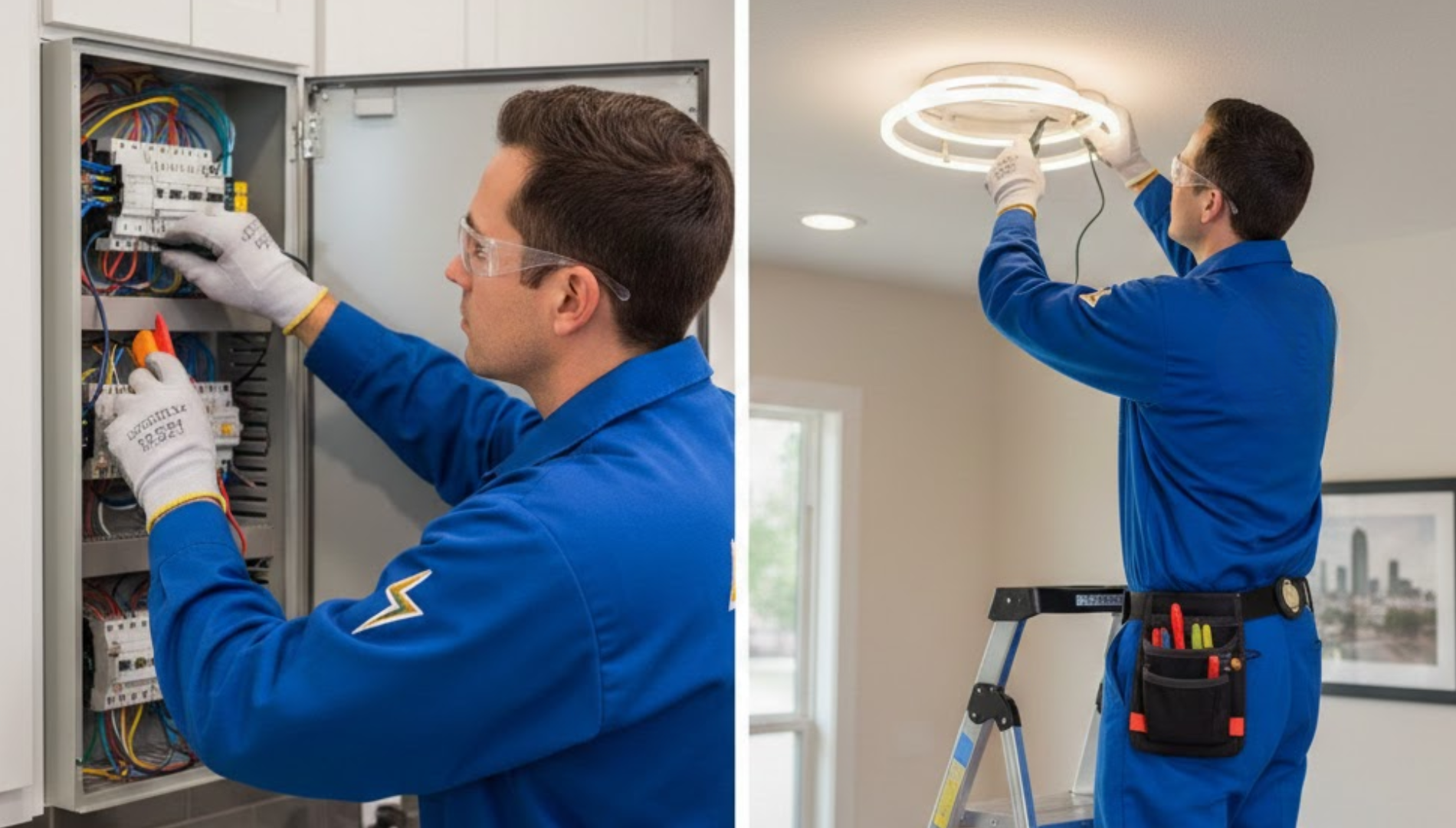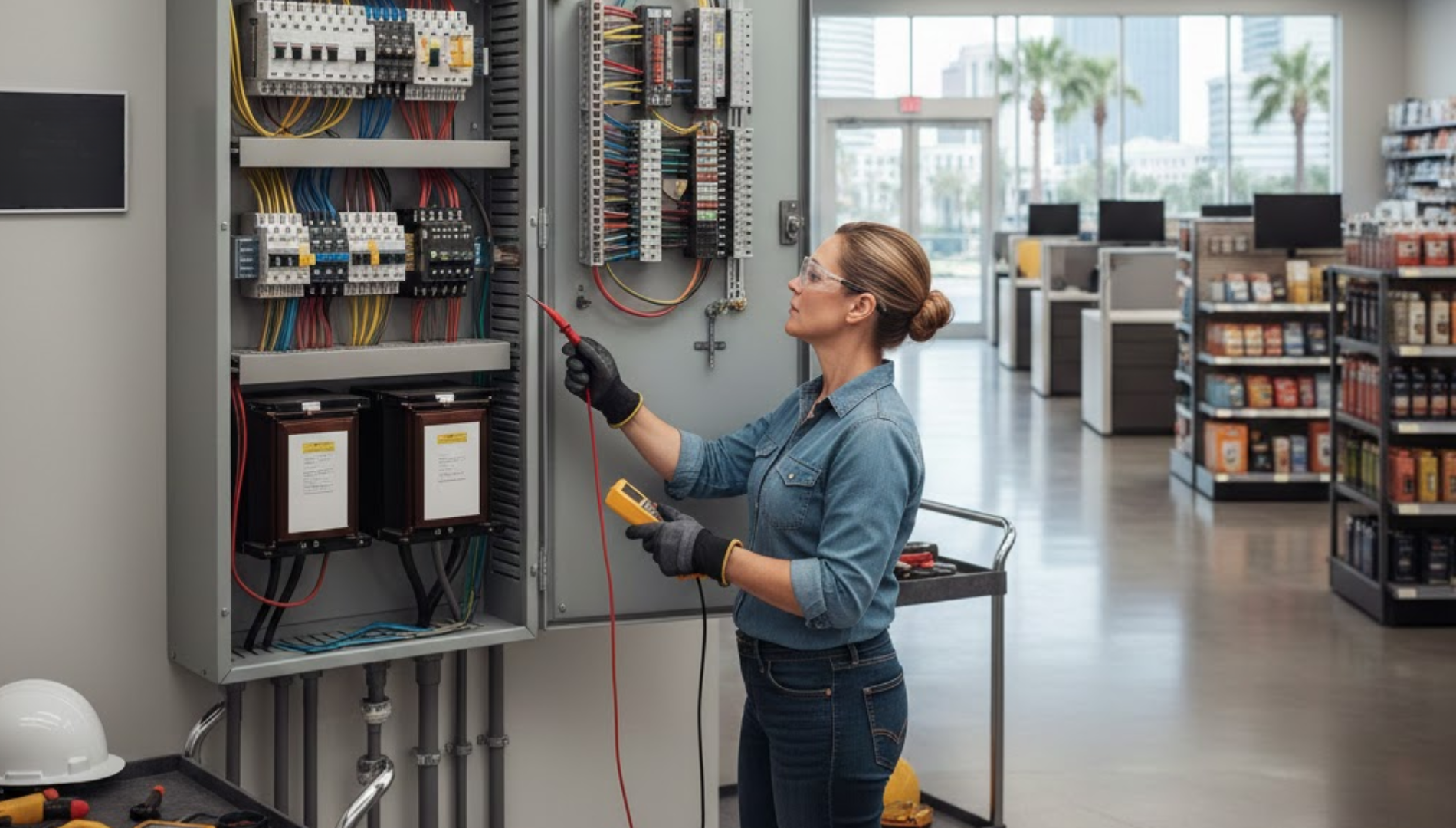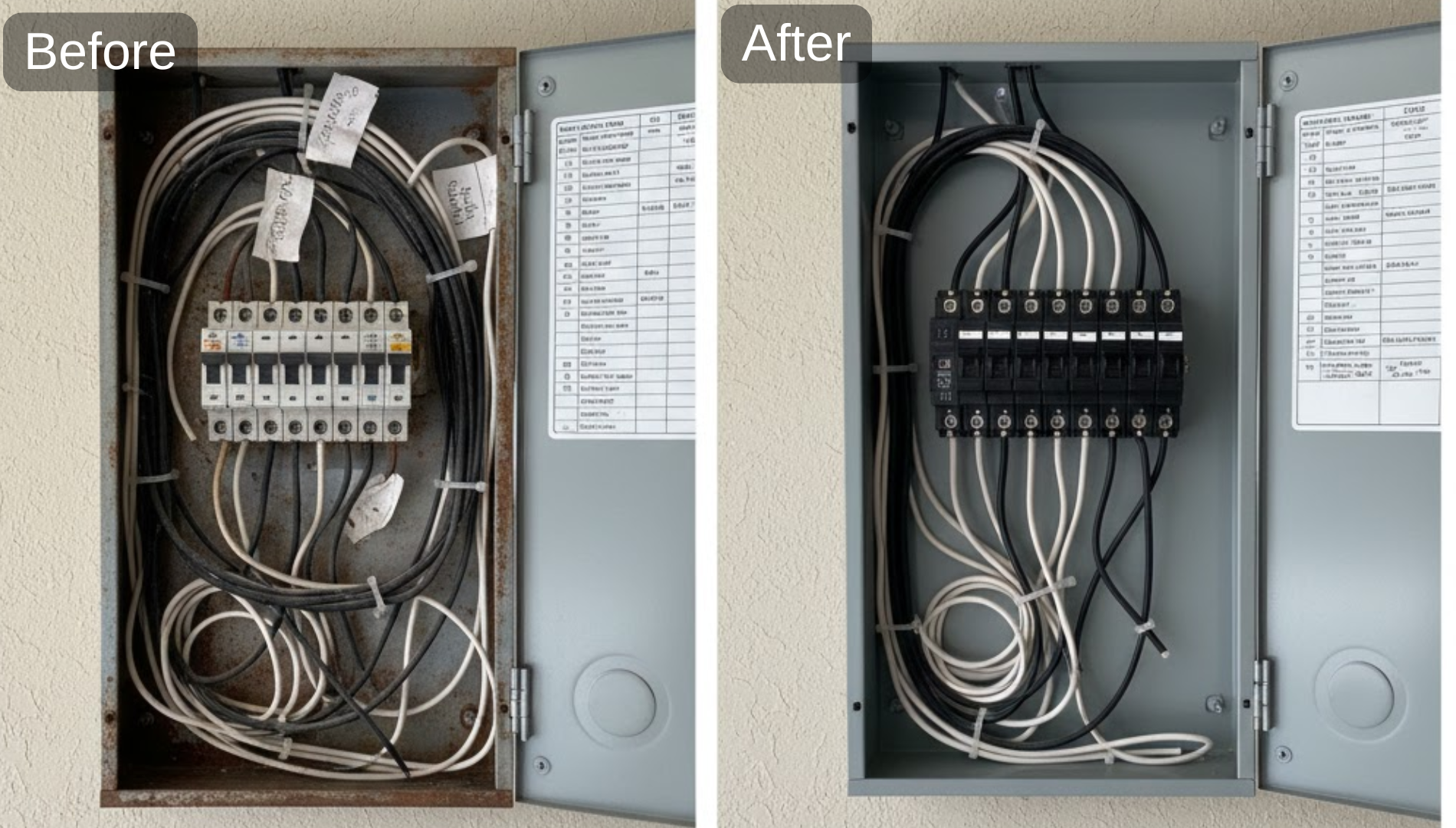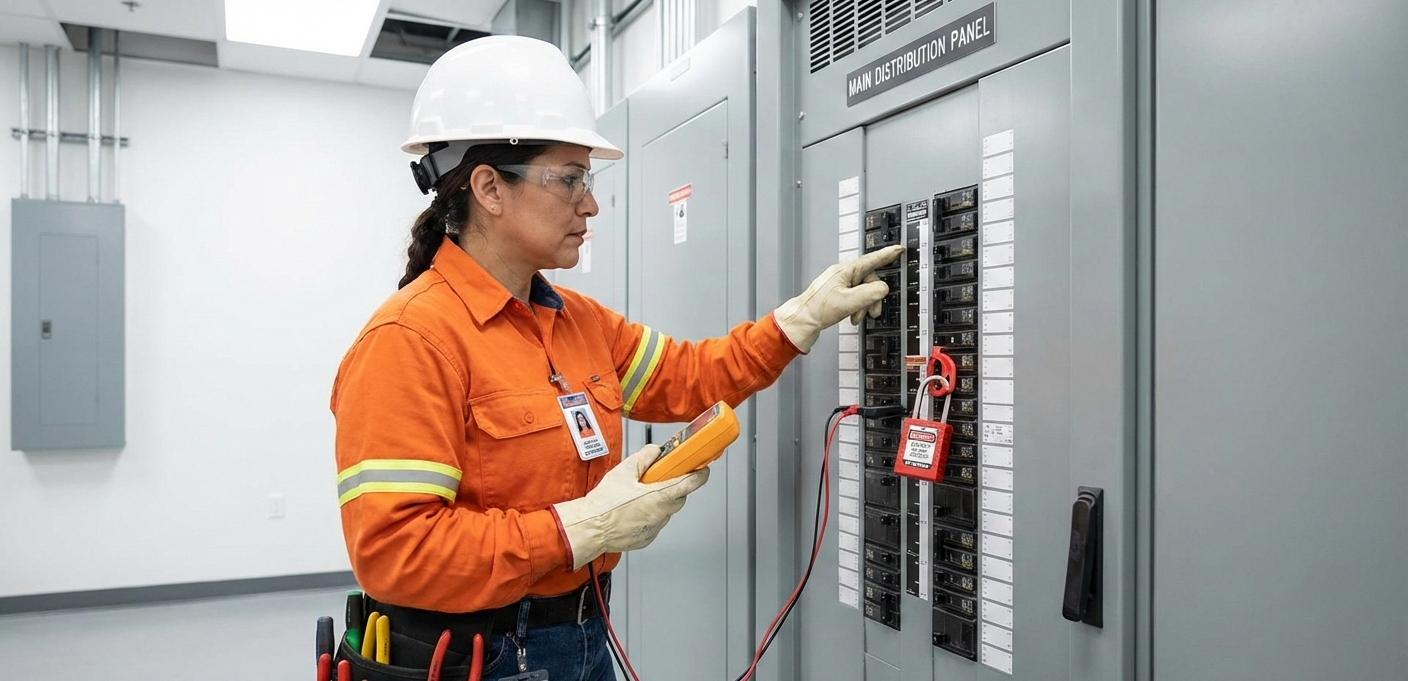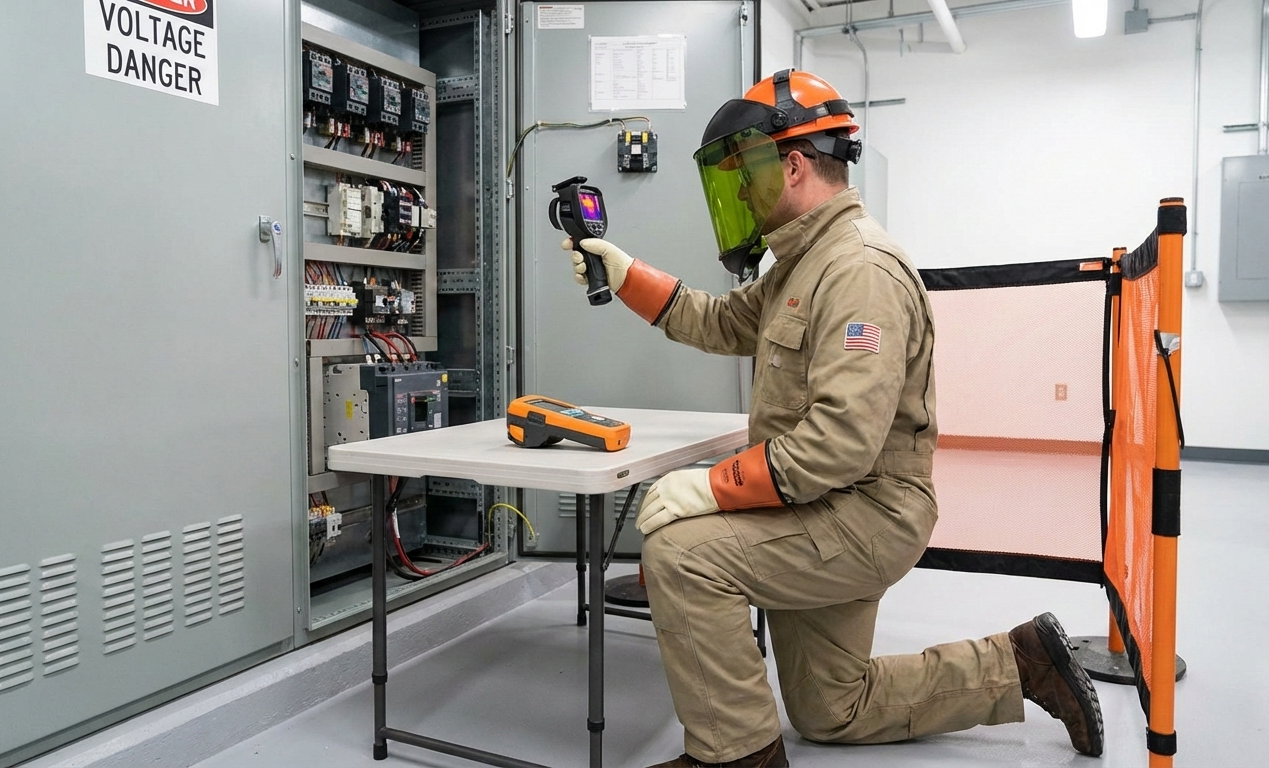Commercial Electrical Installation Planning and Budgeting
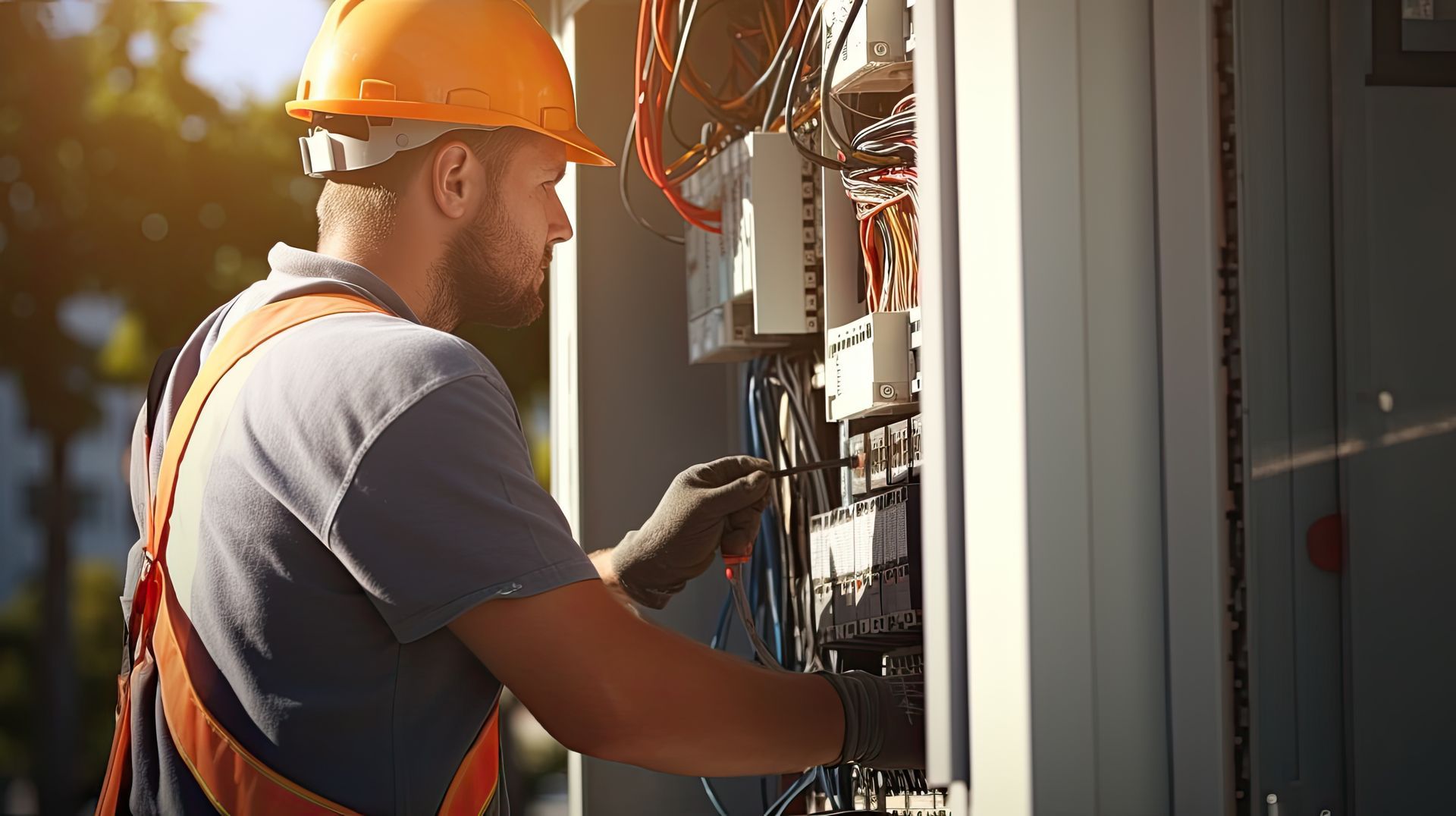
Planning and budgeting for a commercial electrical installation can be a complex process, requiring careful consideration of various factors to avoid unnecessary expenses and delays. Whether it’s a new build or upgrading an existing space, businesses need to conduct a thorough assessment of their electrical needs to ensure everything runs smoothly. Proper planning also helps businesses stay on budget while accommodating current and future electrical demands. By considering key aspects like assessments, future needs, and permit costs, business owners can make informed decisions that set the foundation for a safe and efficient installation.
Conducting an Electrical Assessment
Before beginning any commercial electrical installation, conducting a comprehensive electrical assessment is critical. This initial assessment helps to identify the specific electrical needs of the business, ensuring that the system installed will be capable of supporting operations both now and in the future.
- Evaluate Existing Infrastructure: Determine whether the building's current wiring and electrical panels can handle the business’s power needs. This can help avoid costly upgrades later in the process.
- Identify Power Requirements: Consider the type of equipment the business will use, as well as lighting, heating, and cooling systems. This ensures that the system is neither underpowered nor over-designed.
- Address Energy Efficiency: Look for ways to improve energy efficiency, such as installing energy-saving lighting systems or smart thermostats. This can lower operational costs over time.
Setting Realistic Budget Expectations
Establishing a realistic budget is essential when planning for a commercial electrical installation. Several factors can influence the overall cost, and understanding them from the outset can prevent unpleasant surprises during installation. Protect your business with high-quality electric service, read, “Commercial Electrical Service: The Backbone of Your Business“ to learn more.
- Building Size and Complexity: Larger buildings require more extensive electrical systems, which can increase labor and material costs. Complex layouts, multiple floors, or specialized power needs can also raise the price.
- Power Needs: The electrical load required to support business operations plays a significant role in determining cost. High-demand industries like manufacturing may need more robust systems than offices or retail spaces.
- Local Labor Rates: Labor costs can vary depending on the region. Hiring local electricians at competitive rates can help keep the project within budget, but it's crucial not to sacrifice quality for savings.
- Materials and Equipment: The type of materials used, such as wiring, conduits, and breaker panels, can also impact the overall cost. Higher-quality materials may be more expensive initially but could save money on future repairs.
Accounting for Future Needs
Planning for future growth is an important consideration in any commercial electrical installation. Businesses must account for potential expansions, increased power demands, or new equipment to avoid expensive retrofitting down the line.
- Oversize Electrical Panels: Installing larger electrical panels than currently needed allows for the addition of more circuits in the future. This is a cost-effective way to prepare for expansion.
- Install Conduits for Additional Wiring: Even if not needed right away, installing empty conduits during the initial installation makes it easier to add wiring later.
- Consider Flexible Systems: Look into systems that can easily be adapted to accommodate new technology or changing business needs, such as modular electrical systems.
- Anticipate Increased Electrical Loads: As businesses grow, so does the demand for power. Plan for the possibility of additional machinery, computers, or other equipment by leaving room for upgrades.
Balancing Cost and Quality
While it may be tempting to choose the least expensive option, balancing cost and quality is crucial in any commercial electrical installation. Cutting corners in the installation process or opting for low-quality materials can result in long-term problems that ultimately cost more to fix.
- Invest in High-Quality Materials: Using durable, high-grade materials may have a higher upfront cost but will reduce the likelihood of repairs and replacements down the road.
- Hire Experienced Electricians: Qualified and experienced electricians ensure the installation is done correctly and safely the first time. Inexperienced contractors may lead to code violations or unsafe installations.
- Consider Long-Term Maintenance Costs: Quality installations will require less maintenance, saving businesses time and money in the long run.
Understanding Permit and Inspection Costs
Permits and inspections are essential components of any commercial electrical installation, ensuring that the project complies with local building codes and safety regulations. Ignoring these requirements can lead to fines, delays, and potentially dangerous conditions.
- Local Regulations: Every locality has its own permitting process, and the cost can vary significantly depending on the region and the complexity of the installation.
- Permit Fees: These fees are typically based on the size and scope of the project. Larger and more complex installations often require higher permit fees.
- Inspection Costs: Inspections are required at various stages of the project to ensure the installation meets all safety standards. Failing an inspection can result in additional costs for corrections and re-inspection.
- Time Delays: If permits or inspections are delayed, it can push back the completion of the project, leading to increased labor costs and potential disruption to business operations.
Conclusion
Careful planning and budgeting are critical when it comes to a commercial electrical installation. By conducting thorough assessments, setting realistic budget expectations, accounting for future needs, and balancing cost and quality, businesses can ensure a successful and efficient installation. Understanding permit and inspection costs is also key to preventing delays and keeping the project within budget. With the right approach, business owners can confidently invest in their electrical infrastructure, ensuring it meets their needs today and in the future.
Planning your commercial electrical installation doesn’t have to be overwhelming. At
Nash Electric LLC, we have the expertise to help you conduct detailed assessments, plan for future growth, and ensure your project stays on budget. Whether you need a complete electrical installation for a new facility or an upgrade to your current system, our experienced team is ready to assist. We prioritize quality workmanship and safety, ensuring your installation meets the highest standards.
Reach out to Nash Electric LLC today and let us help power your business!

